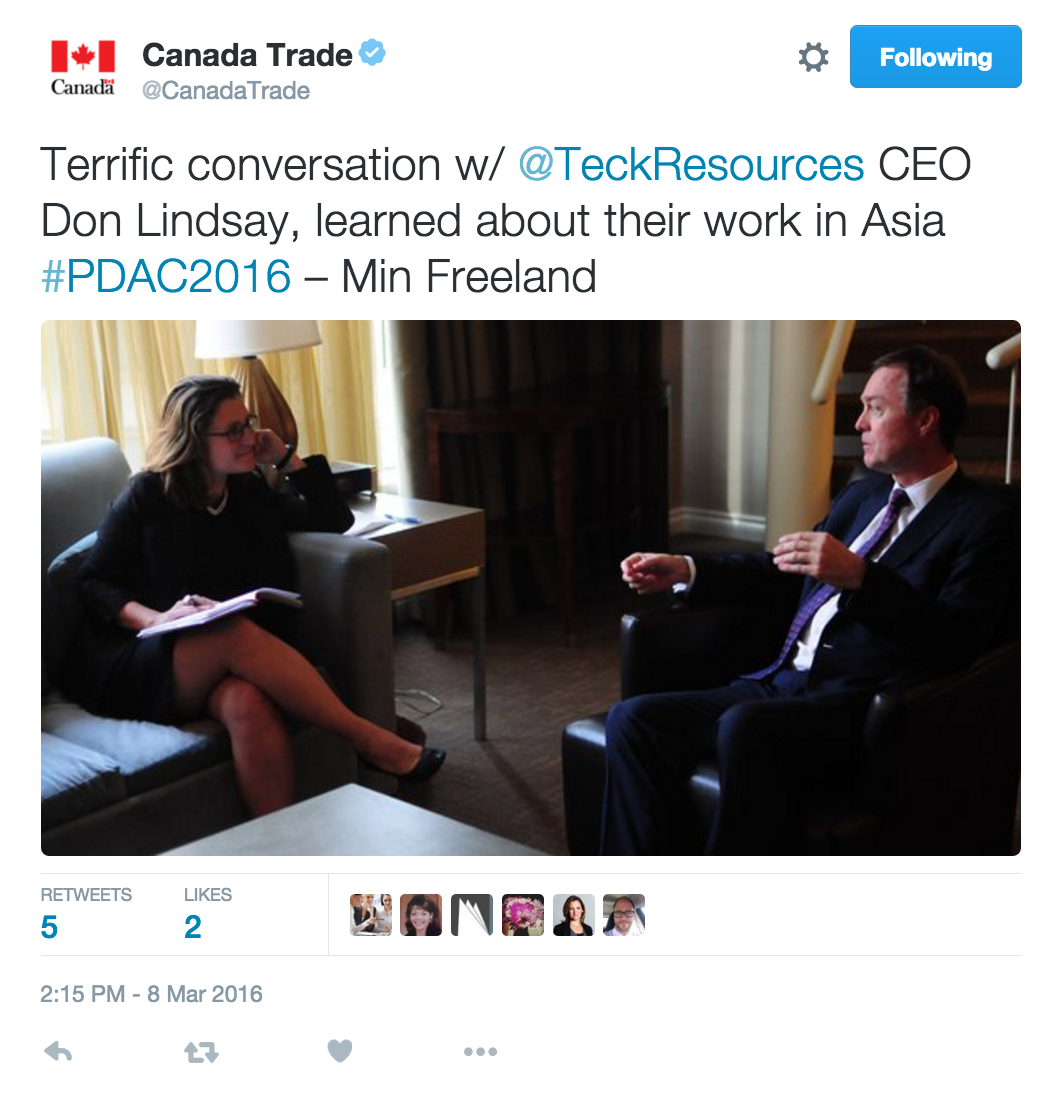 Canada’s parliamentary standing committee on trade will be travelling the country to get regional perspectives on the Trans-Pacific Partnership (TPP), “to assess the extent to which the agreement, once implemented, would be in the best interests of Canadians,” according to a press release.
Canada’s parliamentary standing committee on trade will be travelling the country to get regional perspectives on the Trans-Pacific Partnership (TPP), “to assess the extent to which the agreement, once implemented, would be in the best interests of Canadians,” according to a press release.
The committee, which normally only leaves Ottawa for international travel related to Canada’s trade negotiations, “expects to hold hearings across Canada over the coming months.” Information about dates and locations will be provided later.
Furthermore, the public is invited to submit written comments on the TPP (max. 1,500 words) to ciit-tpp-ptp@parl.gc.ca, with a deadline of April 30, 2016.
Cross-Canada hearings are a good idea the CCPA has proposed here and here, among other places. Though the Liberal government claims it is no longer possible to make changes to the TPP, the hearings provide an opportunity for people to learn about the deal (including its many downsides), and for the all-party trade committee to gauge the level of public acceptance or antipathy outside of Ottawa’s media bubble.
The Alternative Federal Budget, released yesterday by the CCPA, describes the 12-nation TPP as “an archetypal trade and investment liberalization agreement built on the NAFTA model.” It identifies (see page 137) the following three aspects of the agreement as especially problematic for Canada:
<li>The TPP contains an ISDS (investor-to-state dispute settlement) mechanism that will allow foreign investors from TPP parties to sue governments before international arbitration tribunals. The deal will deepen and widen Canada’s exposure to these cases, especially from investors in Japan and Australia, where foreign direct investment to Canada is highest. (For more on ISDS, see the July-August issue of the <em><a href="https://www.policyalternatives.ca/publications/monitor/monitor-julyaugust2015">CCPA Monitor</a></em> or play our video game, <em><a href="https://www.policyalternatives.ca/state-invaders-mobile/">State Invaders</a></em>.)</li>
<li>The TPP will extend and entrench intellectual property rights—through longer copyright terms, stricter trademark protections, and <a href="https://www.policyalternatives.ca/publications/reports/major-complications">longer patent terms</a> in particular—that will reduce access to medicines, <a href="http://www.michaelgeist.ca/2016/01/the-trouble-with-the-tpp-day-1-u-s-blocks-balancing-objectives/">restrict Internet freedom</a>, and stifle tech innovation in Canada. The TPP will require amendments to Canada’s Copyright Modernization Act, among other laws, mainly to the benefit of multinational (U.S.) media corporations.</li>
<li>The TPP will create serious challenges for key Canadian industries. The <a href="http://www.unifor.org/sites/default/files/attachments/tpp_backgrounder.pdf">automotive sector</a> (and tens of thousands of its employees) is threatened by a tariff phase-out that will allow cheaper Japanese imports, with higher levels of parts from China and other low-wage countries, into Canada without increasing Canadian auto exports to Japan. The dairy sector is threatened by quota concessions and other provisions that undermine Canada’s <a href="https://monitormag.ca/2015/10/06/five-reasons-to-defend-supply-management-from-the-tpp/">supply-managed agricultural system</a>.</li>
The AFB also called for a public consultation on the TPP, which should satisfy the following conditions to be meaningful:
<li>It must be conducted with the understanding that Canada will change and/or abandon the TPP if it is found unsatisfactory. It cannot be merely a symbolic process.</li>
<li>It must be completed before Canada proceeds to ratify the TPP. The government cannot advance the implementation process until the consultations have ended.</li>
<li>It must be empowered to apply the conclusions and recommendations of the review to other existing, pending, and future trade and investment agreements. If, for example, the review determines that the TPP’s ISDS mechanism is problematic, other agreements containing an ISDS mechanism, including NAFTA and the pending Canada-EU deal, should be publicly reviewed.</li>
You might find these reports helpful in developing comments for the trade committee if you plan on participating in its consultation process.
Stuart Trew is the editor of The Monitor, the CCPA’s national magazine, and a co-editor (with Teresa Healy) of The Harper Record 2008-2015. Follow Stuart on Twitter @StuJT.






